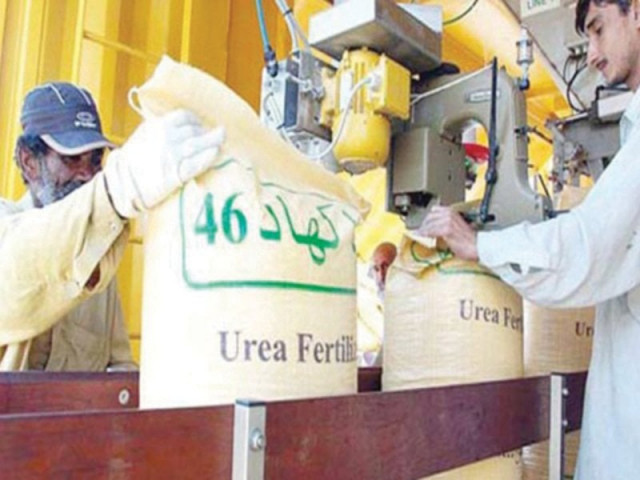Tax rates vary: CCP questions benefits given to some fertiliser plants
Says anti-competitive practices make urea expensive for farmers.

The fertiliser plants set up after 2001 were selling urea at the same price as that charged by plants established before 2001. PHOTO: FILE
The anti-trust watchdog has questioned the grant of Rs4 billion in undue benefits by the government to fertiliser plants set up after 2001 by charging a higher levy from other producers and has called for an end to the discriminatory practice.
In this regard, the Competition Commission of Pakistan (CCP) on Thursday issued a policy note to the federal government, highlighting anti-competitive practices that were also fueling increase in urea prices to the disadvantage of farmers.
It asked the government to apply a similar rate of Gas Infrastructure Development Cess (GIDC) to all fertiliser producers in order to create a level-playing field in the urea market.
It suggested to the government to withdraw the GIDC on feedstock of fertiliser plants set up before 2001 and said the second schedule of the GIDC Act may be amended to rationalise the cess on fuel gas used by the plants. This would eliminate the cost disadvantage to pre-2001 plants, it said.
The recommendations come at a time when the government is already facing criticism for increasing GIDC in the new budget that opposition lawmakers believe is contrary to provincial autonomy.
They argue that the government cannot revise the tax on gas without consulting the provinces, as enshrined in the constitution.
In the policy note, the CCP observed that feed gas was a major (80%) raw material used in the production of urea fertiliser. A lower rate of feed gas coupled with exemption from GIDC for post-2001 fertiliser plants had resulted in a price difference of Rs355 per million British thermal units (mmbtu) for feed gas between the pre- and post-2001 plants.
This cost disadvantage made it difficult for older plants to compete with newer ones, it said.
Despite paying no levies, according to the CCP, the fertiliser plants set up after 2001 were selling urea at the same price as that charged by plants established before 2001. This resulted in consumer loss of Rs28.1 billion and gave undue profit of Rs11.2 billion to post-2001 plants.
The CCP said after December 2013 amendments to the GIDC Act, the cost difference in feed gas had increased and currently stood at Rs355 per mmbtu, resulting in higher than normal profit of Rs4 billion only in the first quarter of 2014 in respect of feed gas cost savings.
The selective tax levy, it said, had placed the fertiliser sector in a catch-22 situation. “If post-2001 plants sell urea at a price based on their cost of feed gas, they will certainly sell at a much lower price than that of pre-2001 plants and will drive the latter out of the market.”
This will completely be the antithesis of the Fertiliser Policy 2001 as investment will be driven out of the market and domestic production will decrease.
On the other hand, if post-2001 plants sell urea at a price based on the cost of feed gas for pre-2001 plants, the price will certainly not be the competitive price and farmers will end up paying much higher rates.
According to the CCP, because of the policy adopted by the government, distortions have been created in the market, resulting in farmers paying higher prices.
It pointed out that the distortive policy was having a multiplier effect as high urea prices were now pushing up prices of crops, particularly of staple food. It also has had a cascading effect on every industry connected with the agricultural produce.
Published in The Express Tribune, June 20th, 2014.
Like Business on Facebook, follow @TribuneBiz on Twitter to stay informed and join in the conversation.



















COMMENTS
Comments are moderated and generally will be posted if they are on-topic and not abusive.
For more information, please see our Comments FAQ